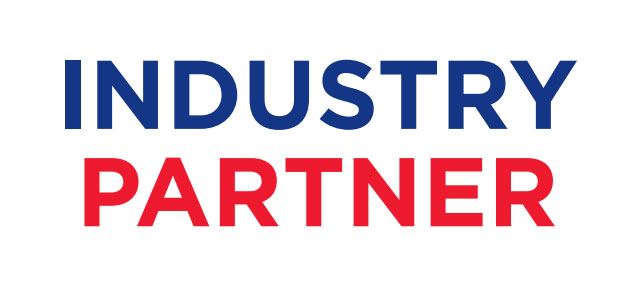The hospitality industry is a fast-paced industry. Changes in the economy and the industry have increased the importance of building quality teams. It is so important to create effective teams to ensure everything gets done efficiently. Creating successful teams takes time and energy, but once in place, they provide increased performance and productivity.
What is a Team?
It is kind of a silly question, right? Of course, everyone knows what a team is, but some get teams confused with a group of employees. Nevertheless, a group is not a team. A group can have individuals with varied interests, attitudes and thought processes. But the difference is that team members will have a common objective or a common goal to achieve. A group of employees might work together, but they have different objectives in mind without regard for a common outcome.
Everyone knows what a team is when they see it. Sports teams is the most common that comes to mind. The concept of a team is not complicated:
Teamwork involves a set of interdependent activities performed by individuals who collaborate toward a common goal.
But why are teams needed? Studies have found that a single brain sometimes is not capable of taking critical decisions alone. Individuals need the support and guidance of others to come up with an effective solution. Although the answer to why teams are needed is simple, building well-performing teams is not so easy.

Teamwork Truly Does Make the Dream Work
The benefit of teamwork in hospitality businesses is enormous. Having employees all rowing the same way helps management to keep the ship on course. Some of the main benefits of having an effective team include:
- Helps to gain a new perspective-Sharing ideas and methods of performance helps members gain new perspectives. Team members no longer work in silos but know that what they do helps to impact the bottom line.
- Reduces workload-Team members come to rely on one another to bring other talents and knowledge to the table. Sharing the workload becomes easier knowing there are others contributing to one common goal.
- Builds trust-Working together helps employees to learn to trust others on the team. This builds confidence in each other’s abilities.
- Increases productivity-When there are more minds, hands, and back at work, productivity naturally improves. By sharing the workload—everyone on the team doing their part—employees become more engaged in their performance.
- Improves customer service-A well-tuned team cannot help but provide excellent customer service. A good team exudes a strong work ethic that creates a good impression on customers. This keeps them satisfied with your services and of course, they then spread the word to others.
- Increases employee pride and engagement-Every business is striving for employee engagement. One of the key ingredients for increasing engagement is to increase the employee’s interest in their work. A well-formed team does just that. It generates pride in the individual members, leading to greater interest in their work.
- Reduced turnover-When team members are engaged in their work, they tend to stay longer with their employer. The contentment and satisfaction level in their work increases when the employee is part of a good team. Team members tend to enjoy the camaraderie and the thrill of reaching team goals.
- Improved branding-If it is a well-constructed team and team members are engaged in their work, they tend to spread the word. They become ambassadors for the company and let their friends and family know how happy they are at work. Some broadcast the message via social media, increasing the company’s brand awareness.
However, a team is not just putting a group of employees together and telling them to work well with others. The team has to be developed with a conscious effort toward making a company dream team. This takes time and energy and there are some key steps to follow in building a successful team. Once the team is formed, it needs to be nurtured and fed. It needs to be given guideposts and directions for reaching collaborative goals.

Forming a Successful Team
To form a successful team, it needs to be understood that time-outs need to be called to set foundations. You will need to have all team members in one place at one time. This may be difficult in some sectors of the hospitality industry, but it is extremely important. Even if it is a half hour before shift or after, having everyone together helps create cohesiveness. These meetings, (it may require several sessions), set up the starting point of the team. These meetings should be use to set forth the following four key factors:
- Objectives of the team-Each team member must understand and accept common objectives. If it is a hotel, it could be creating faster room turnover. For a restaurant, improving customer service, etc.
- Roles for team members-Every team member must understand where they fit in the overall picture. They need to know how their position contributes to the final outcome.
- Guidelines-Team members need to understand what methods and systems will be used to help them accomplish goals.
- Relationships-It must be stressed that team members must develop trust and respect for one another and their role on the team.
Keep in Touch
Individual Team Members
After the formation of the team, it’s imperative that you continually “feed” the team and its members. This can be done through team apps, email, or text, but the point is to strive to motivate your team. For individual team members, show that you care about their performance and any issues they might have. One of the reasons for high turnover and poor performance is a lack of communication. Even the best self-starter employees need to hear from their superiors. They need reinforcement, encouragement, feedback, and yes, even discipline, if necessary.
Team as a Whole
Continually provide direction and guidance to your team. Give them inspiration. Let them know where they stand regarding the team goals. Solicit feedback from the team and see if there are any tools or assistance you can provide to make the journey toward their goals easier. Do what you can to promote positive and productive relationships among team members.

Tips on Keeping the Team Alive and Successful
After forming the team and communicating with team members individually and as a team, now what? Keeping all team members motivated and engaged toward the common goals can be tricky. You’re dealing with multiple personalities who carry their own individual baggage. Some will be stronger than others on some days and then weaker on others. That’s just like sports teams. But as the coach, you can keep the team moving in the right direction by implementing a few of the following tactics:
- Make the work environment fun-This doesn’t mean that they stop working, but that the work is enjoyable. Give team members a reason for doing what they’re doing. Show them what the final goal looks like. Describe it so they can see it and feel it. And remind them of the reward at the end. Add spark to their mission.
- Give the team a common cause-This should be the goal they are all shooting for, but you can make it more than that. Come up with a catchy name for the goal. Have team members draw what the name means and display the drawing for all to see.
- Give the team a name-Or let them come up with a name. Create a banner with the team name on it or get t-shirts or buttons made with the team name on it.
- Give recognition-Recognize both team and individual accomplishments in public ways, as appropriate.
- Develop bonding experiences-If possible, organize a zip-line, canoeing, volleyball, or some other experience. Team members should know each other and understand each other’s strengths, so they can trust and leverage each other as needed.
- Provide training-So individuals feel they are being invested in, as well as staying current and marketable in their competency set

Building a Winning Team is a Process
Teams provide greater productivity and a higher caliber of performance than employees working alone in silos. That is the good news about creating and nurturing a successful team. But as with all things great, it requires work. Attention must be given toward reinforcing goals and motivating team members. As in human development, team development is not a linear process. The introduction of new members, or the successful completion of a milestone may require another motivational team meeting. That’s just part of the process for keeping thriving teams alive—and it’s worth the effort!









